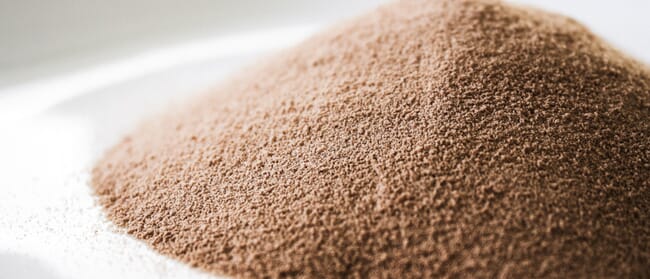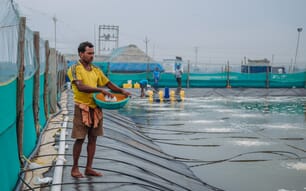
It is produced via fermentation © Unbio
Initial tests, conducted by the Instituto de Investigación y Tecnología Agroalimentarias in Spain as part of the Valuewaste EU project, suggest that substituting fishmeal with Uniprotein increased survival rates.
With a 100 percent inclusion of fishmeal the survival rate was 37 percent and by substituting all fishmeal with Uniprotein the survival rate increased to 67 percent - an improvement of 75 percent. Additionally, Uniprotein performed as well as fishmeal on feed conversion ratio. The results indicate that the shrimp production industry could improve productivity and profits by replacing fishmeal with Uniprotein, according to Unibio.
Commenting on the trial, David Henstrom, CEO of Unibio, said in a press release: “We are delighted with the positive results of this trial, which confirmed the viability of Uniprotein as a replacement for fishmeal in whiteleg shrimp. Importantly, it has shown that Uniprotein can increase the survival rate of shrimp by about 75 percent, which could potentially transform the shrimp industry by improving sales and increasing profits”.
Tackling Vibrio
Based on results from the initial tests, a challenge trial with Vibrio harveyi was then conducted to induce a stressor to the shrimp and investigate if Uniprotein affected the immune response during the challenge. Results from this trial showed that diets in which Uniprotein had replaced 100 percent of the fishmeal - decreased the mortality from 16 percent to 2 percent. Such results indicate that Uniprotein triggers an interesting immune response that needs further investigation.
Unibio’s initial nutritional trial, which followed the lifecycle of a shrimp and was conducted over a five-month period, comprised 24 200 litre tanks of water connected to a RAS each with 100 post-larvae shrimp and seven different diets, with various percentages of Uniprotein replacing fishmeal.



